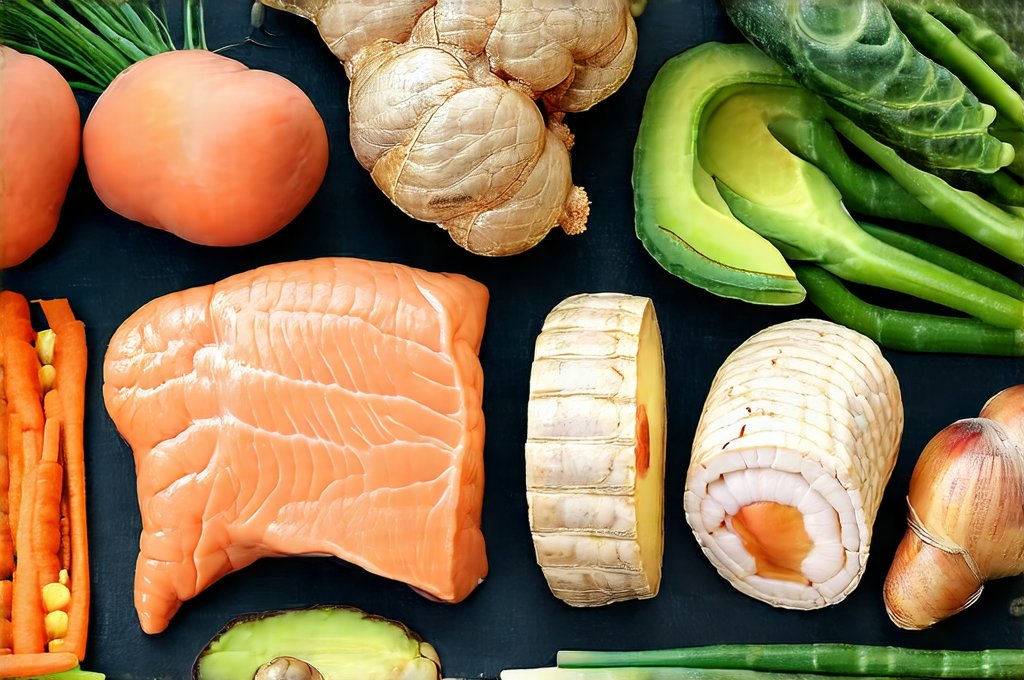Many people experience digestive discomfort after consuming protein – bloating, gas, even nausea. This isn’t necessarily an indication of a food allergy or intolerance, but rather can be linked to the type of protein consumed, how it’s prepared, and individual gut sensitivities. Often, highly processed proteins, large portions, or proteins lacking in accompanying fiber can contribute to these issues. The good news is that building muscle and maintaining overall health doesn’t require sacrificing digestive comfort. By strategically choosing protein sources known for their digestibility and incorporating them into a well-rounded diet, individuals can enjoy the benefits of adequate protein intake without experiencing unwanted side effects.
The key lies in understanding how our bodies process different proteins. Some proteins are naturally easier to break down due to their simpler amino acid structure or lower levels of potential irritants like certain fats or compounds found in legumes. Furthermore, preparation methods play a crucial role; gentle cooking techniques and pairing protein with easily digestible carbohydrates and healthy fats can significantly improve its tolerability. This article will explore various protein sources that are generally kinder to the gut, along with practical tips for maximizing their digestibility and minimizing discomfort – empowering you to nourish your body without compromising on comfort.
Easily Digestible Protein Sources
When seeking protein sources gentle on the gut, leaning towards options that are naturally less complex and easier to break down is a great starting point. White fish, such as cod, haddock, or flounder, stand out for their lean protein content and minimal fat. This reduces the digestive workload. Similarly, poultry – particularly chicken breast and turkey breast – are excellent choices when prepared without excessive oil or heavy seasoning. These options typically contain lower levels of compounds that can trigger digestive distress in sensitive individuals.
Beyond animal sources, certain plant-based proteins offer exceptional digestibility. Tofu, especially silken tofu, is remarkably easy to process due to its softer texture and minimal fiber content. It’s a versatile ingredient easily incorporated into smoothies or gently stir-fried. Another excellent option is tempeh, made from fermented soybeans, which often proves more digestible than unfermented soy products like edamame because the fermentation process partially breaks down complex carbohydrates that can cause bloating. Finally, protein powders derived from whey isolate (low lactose) or hydrolyzed collagen are frequently well-tolerated due to their pre-digested state and reduced potential for irritation. You might also find helpful information on protein sources that are easier to digest.
It’s important to remember that individual tolerance varies greatly. What works well for one person may not work for another. Experimenting with different sources and paying attention to your body’s response is crucial in identifying the proteins that best suit your digestive system. Paying attention to portion sizes is also key; even easily digestible proteins can cause discomfort if consumed in excessive amounts. Consider exploring meal combinations for optimal digestion as well.
Optimizing Protein Digestion: Preparation & Pairing
The way we prepare protein significantly influences its digestibility. Harsh cooking methods like deep-frying or grilling at very high temperatures can denature proteins, making them harder for the body to break down. Instead, opt for gentler techniques such as steaming, poaching, baking, or slow-cooked meals. These methods preserve the integrity of the protein structure and minimize the formation of potentially irritating compounds. Marinating protein in a tenderizing agent (like lemon juice or yogurt) before cooking can also aid digestion by breaking down tough fibers.
Pairing protein with appropriate side dishes is equally important. Combining protein with easily digestible carbohydrates – like white rice, sweet potatoes, or cooked oats – provides the necessary glucose to support amino acid absorption. Adding a source of healthy fats – avocado, olive oil, or nuts – slows down digestion, allowing for more complete protein breakdown and nutrient absorption. Moreover, incorporating fiber-rich foods (in moderation) alongside your protein can promote healthy gut motility and prevent constipation. However, be mindful that excessive fiber intake can sometimes exacerbate digestive issues in sensitive individuals; start with small amounts and gradually increase as tolerated. If you’re looking for budget-friendly foods to pair, there are many options available.
Finally, chewing food thoroughly before swallowing is often overlooked but incredibly vital for proper digestion. This mechanical breakdown of food helps to reduce the workload on your stomach and intestines. Taking smaller bites and savoring each mouthful allows enzymes in saliva to begin the digestive process even before the food reaches your stomach.
Minimizing Bloat with Specific Protein Choices
Bloating is a common complaint associated with protein intake, often stemming from incomplete digestion or fermentation of undigested proteins in the gut. Certain protein sources are inherently more likely to cause bloating than others. For example, legumes – while incredibly nutritious – contain complex carbohydrates called raffinose that can be difficult for some people to digest, leading to gas production. Soaking legumes overnight and thoroughly rinsing them before cooking can help reduce their raffinose content. Similarly, red meat tends to take longer to digest than white meat or fish, increasing the risk of bloating.
When selecting protein powders, pay close attention to ingredients. Whey concentrate, while affordable, contains lactose, which can trigger bloating in individuals with lactose intolerance. Opting for whey isolate (which has most of the lactose removed) or hydrolyzed whey protein (pre-digested for even easier absorption) can often alleviate these symptoms. Furthermore, avoid protein powders containing artificial sweeteners or sugar alcohols, as these ingredients are known to cause digestive upset in many people. For a sweet treat that’s gentle on your microbiome, consider sweet treats.
Consider incorporating probiotic-rich foods like yogurt or kefir into your diet alongside protein intake. Probiotics introduce beneficial bacteria to the gut, which aids in digestion and reduces bloating. Fermented soy products (like tempeh) also contribute to a healthy gut microbiome.
The Role of Cooking Methods & Seasoning
As previously mentioned, gentle cooking methods are paramount for optimizing protein digestibility. Avoid frying proteins or using excessive amounts of oil, as these can slow down digestion and increase the risk of bloating. Steaming, poaching, and baking are preferable options. When grilling, use lower temperatures and shorter cooking times to minimize protein denaturation.
The choice of seasoning also impacts gut health. Spicy foods and excessive amounts of certain seasonings (like garlic or onions) can irritate the digestive system in sensitive individuals. Instead, opt for mild herbs and spices like ginger, turmeric, or rosemary – which have anti-inflammatory properties and may aid digestion. Avoid artificial flavorings and MSG, as these can also trigger digestive discomfort.
Properly seasoning protein can actually enhance its digestibility. Marinating meat with acidic ingredients (like lemon juice, vinegar, or yogurt) helps to break down tough fibers and tenderize the protein. Similarly, adding a pinch of salt to fish before cooking can help to denature proteins and make them easier to digest.
Understanding Individual Sensitivities & Food Diaries
Ultimately, identifying protein sources that are gentle on your gut requires self-awareness and experimentation. What works well for one person may not work for another. Start by keeping a food diary to track your protein intake and any associated digestive symptoms. Note the type of protein consumed, how it was prepared, what other foods were eaten alongside it, and any resulting discomfort (bloating, gas, nausea, etc.).
Pay attention to patterns that emerge in your food diary. Do you consistently experience bloating after eating red meat? Does tofu seem to sit well with you but chicken breast causes discomfort? Identifying these triggers can help you narrow down the protein sources that are best suited for your digestive system.
If you suspect a more serious underlying issue – like a food allergy or intolerance – consult with a registered dietitian or healthcare professional. They can help you identify potential allergens and develop a personalized dietary plan to support your gut health. Remember, listening to your body is the most important step in optimizing your protein intake and achieving digestive comfort. Also consider meal combinations that are easier on the gut for optimal results.


















